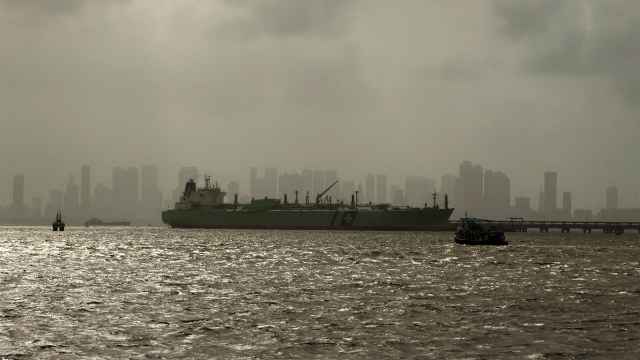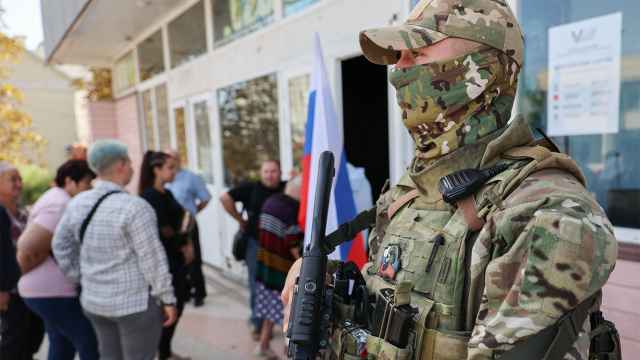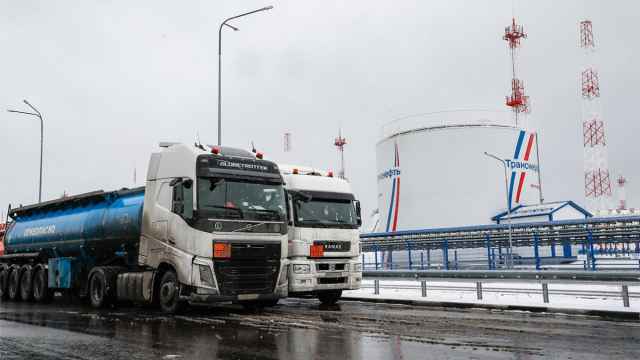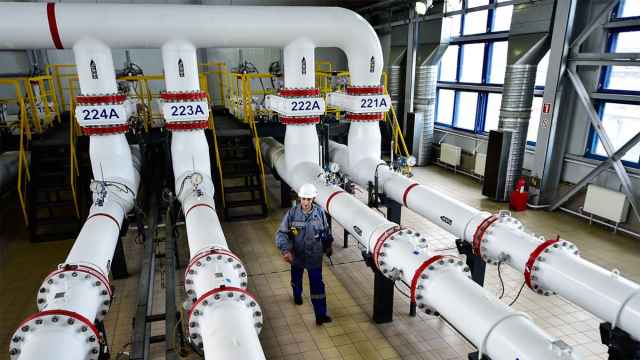Britain on Thursday announced its largest sanctions to date against Russia's "shadow fleet" of tankers used to sidestep a Western embargo on oil exports after its full-scale invasion of Ukraine.
The government's latest crackdown bars 18 ships from U.K. ports and British maritime services, bringing the total number of sanctioned vessels to 43.
Experts say the so-called shadow fleet, with opaque ownership or no proper insurance, has allowed the Kremlin to keep selling oil despite sanctions on exports and a price cap on global sales.
The U.K. also accused the shadow fleet of posing a threat to the environment and coastlines "as a result of its flagrant violation of basic safety standards."
Britain's Foreign Commonwealth and Development Office (FCDO) said its sanctions were "starving Putin's war machine of crucial revenues."
"A significant number of the ships targeted by the U.K. to date have been forced to sit idling uselessly outside ports," it said in a statement.
"I have made it my personal mission to constrain the Kremlin, closing the net around Putin and his mafia state using every tool at my disposal," Foreign Secretary David Lammy said.
However, a report this week by the Kyiv School of Economics found that the volume of Russian oil being exported via shadow tankers had almost doubled to 4.1 million barrels a day, as of June this year. Despite Western sanctions, 70% of Russian oil exports by sea were conducted by ghost tankers, according to the report.
Ships targeted in the new U.K. sanctions package include some owned by Sovcomflot, Russia's largest shipping company.
Britain's Foreign Office also announced sanctions against four LNG tankers and Russian gas company Rusgazdobycha JSC.
A Message from The Moscow Times:
Dear readers,
We are facing unprecedented challenges. Russia's Prosecutor General's Office has designated The Moscow Times as an "undesirable" organization, criminalizing our work and putting our staff at risk of prosecution. This follows our earlier unjust labeling as a "foreign agent."
These actions are direct attempts to silence independent journalism in Russia. The authorities claim our work "discredits the decisions of the Russian leadership." We see things differently: we strive to provide accurate, unbiased reporting on Russia.
We, the journalists of The Moscow Times, refuse to be silenced. But to continue our work, we need your help.
Your support, no matter how small, makes a world of difference. If you can, please support us monthly starting from just $2. It's quick to set up, and every contribution makes a significant impact.
By supporting The Moscow Times, you're defending open, independent journalism in the face of repression. Thank you for standing with us.
Remind me later.






